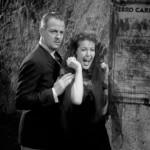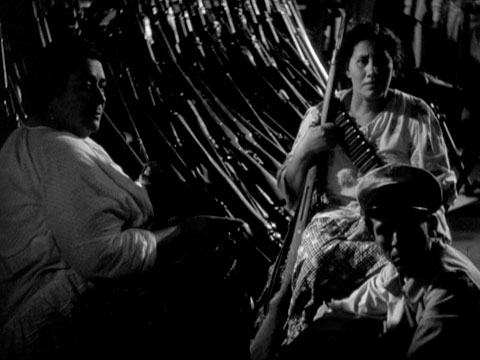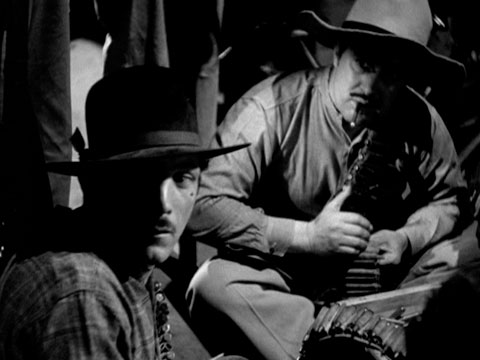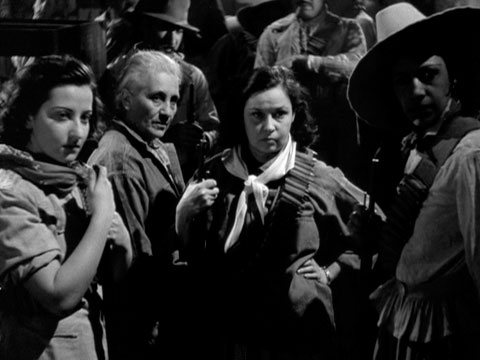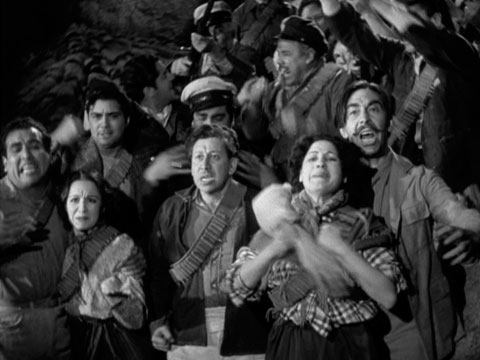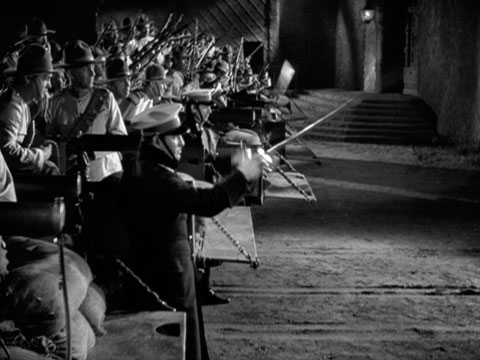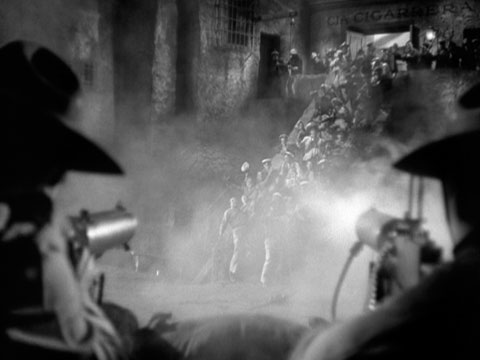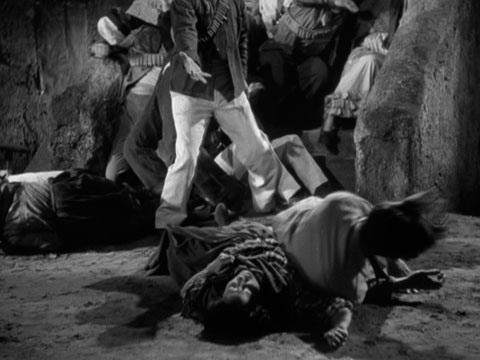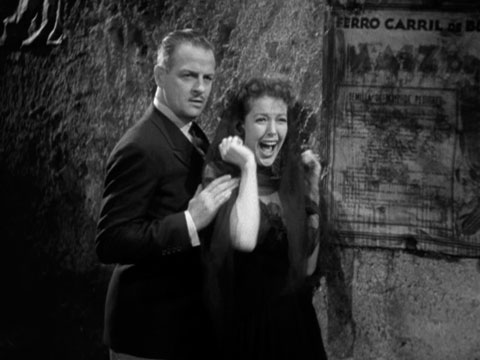Dir. by John Ford
The following are screen captures from two related sequences in John Ford’s Four Men and a Prayer, a remarkable (and remarkably strange) film about imperialism, globalization, and the military industrial complex that predates America’s involvement in World War II by three years. I could have just as easily ended that sentence with the phrases “that predates Eisenhower’s farewell address by more than two decades” or “that predates the Iran-Contra scandal by nearly fifty years.” The film is about four British sons who in their efforts to redeem the reputation of their murdered father uncover an elaborate plot by otherwise respectable businessmen to sell arms to anyone with the money to pay, even when that means supplying both sides of a revolutionary struggle in South America.
Sequence 1
Loretta Young plays Lynn Cherrington, the carefree American lover of one of the sons, who, over the course of the film, discovers that her father is president — in title, at least — of the arms manufacturer that profits from the war in “Marlanda, an island kingdom far off the beaten track, hurled into revolt by the machinations of a munitions sydicate,” or so the fictional country is described in an inter-title. Note the preposition there. War is induced by the profiteers.
In sequence 1, Ford offers a montage of beautiful portraits of the revolutionaries, who all cling tightly to the weapons that might bring them freedom. The close-up of Young establishes the point of view here: naive, privileged, romantic. She’s a tourist. These are six consecutive shots, accompanied only by the voice of the revolution’s leader, who says of the weapons: “With these I shall liberate my unfortunate people. They shall be happy once more. Liberty!”
Sequence 2
Moments later the revolutionaries discover their weapons are faulty, and the entire group is gunned down — again with Loretta Young looking on. I’ve trimmed a few shots from this sequence but what I’ve included is representative of Ford’s montage.
One of the few bits of writing about this film I could find online makes the fairly obvious point that Four Men and a Prayer reenacts imperialism both in its representation of other cultures — Ford’s vision of the Other is only slightly more nuanced than Spielberg’s in Temple of Doom — and in its basic plot construction: the story, after all, posits that the real moral issue of the film is whether four incredibly wealthy British men can restore their father’s honor.
But, good god, these two sequences are like something from Godard’s Week End — a genuinely shocking and disorienting experience that short-circuits every plot contrivance. As the characters saunter their way through the remainder of their adventure over the next 30 minutes, every move is infected with cynicism and bile.
